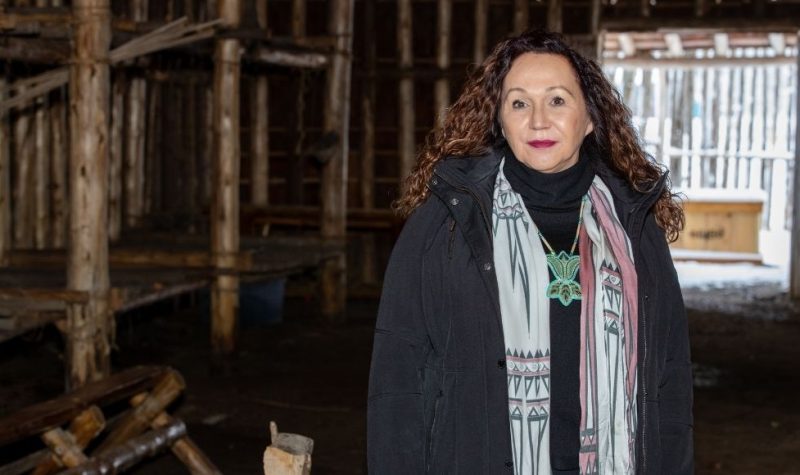With dams serving "zero purpose" on the Grand River, an Indigenous water researcher is calling for them to be decommissioned.
Last week, Dr. Dawn Martin-Hill, McMaster University’s Indigenous Studies Chair and the project lead for Ohneganos Indigenous water research project, told Six Nations Elected Council that she would like to begin decommissioning water dams within the Grand River watershed to improve water quality and allow for more biodiversity to flourish.
Martin-Hill says that the Grand River has over 100 dams along the waterway, an amount that she says is "insane" for a river the size of the Grand River. She added that many of the dams are no longer in use or serve no purpose to prevent flooding and that many can prevent local wildlife from travelling along the river, explaining how these dams cause issues for the Six Nations community.
"Along Six Nations is the deepest part of the Grand River because it's essentially a holding tank for waste, 25 wastewater treatments upstream from us. And I have drone footage that shows even coming in from Guelph just after the Brantford dam you can see the waste coming toward us," she said. " That waste has been settling there for over 100 years, since they built the dam."
In her work, she says she has focused on two dams along the Grand River: the Port Maitland dam and the Caledonia dam. The approaches for each decommissioning project would be different because of the environmental impacts. As an example, she says because of carcinogens that were produced and put back into the river near the Caledonia dam, it would need to be decommissioned in an incremental process to ensure the pollutants don't destroy the current ecosystem.
"So we thought why don't we look at decommissioning the one dam near Caledonia, it serves no purpose. We had plants in Elmira that had been making things like carcinogens, things that cause cancer," she said. "That can not be necessarily cleaned out, it can just simply be dispersed to make it less lethal."
"They (biologists and chemical engineers) suggested if we take the Caledonia Dam down we would need to take it down little by little," she continued.
The Port Maitland dam would be the one that would be more time efficient and have less adverse environmental affects if it was decommissioned.
"If we take down the Port Maitland dam, that would be the best," she said. "It's so small but yet it's just enough to keep the fish from migrating towards us, which is our subsistence, that is our cultural right to be able to fish," she says. "So that's the one we identified as the least harmful to the ecosystem."
Martin-Hill says she hopes with her research being done it can allow for more information to be provided to community members, schools and other municipalities to let them know about the negative side affects some dams are having on the Grand River and the dangers of allowing wastewater to be collecting in certain areas.
Six Nations Elected Council approved Martin Hill’s ethics application during the May 23 general council meeting and will continue to work with her group on the water research project.
For the full CJKS story listen below:


